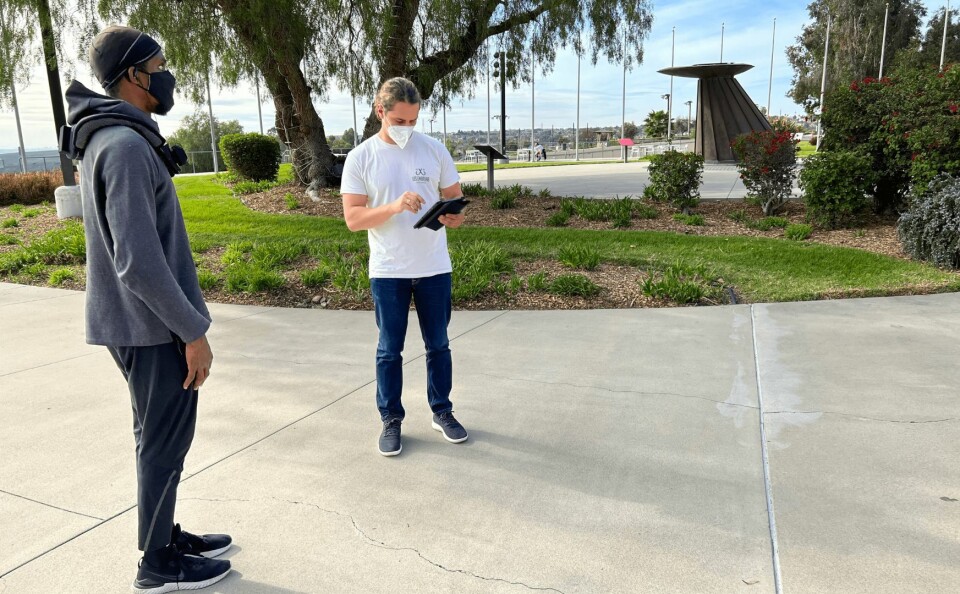-
Digital ID to be accepted at French airports this summer
Scheme not open to non-French residents despite plans to include certain card holders by the end of 2025
-
AI usage on the rise in France but lags behind UK and US
Uptick in generative AI usage outpaces smartphone and internet adoption across similar timeframe
-
Poor-quality fibre internet installations remain an issue in France
Stricter measures are announced to improve connection quality
Driverless cars inspire French AI expert to build tool for blind
The car technology can be adapted to warn blind and partially sighted people of hazards in their path

A scientist has partnered with a computer vision specialist to develop a harness that warns blind people of hazards in their path, using the same technology as self-driving cars.
The harness, which weighs just under a kilogram, is worn around the neck.
It does not replace a traditional white cane or guide dog as a navigational aid but it does give advance warning of potential upcoming hazards, including moving obstacles such as e-scooters, bicycles and other walkers, or street furniture such as signposts or flowerbeds.
A ‘sound picture’ is played through special speakers which do not cut ambient noises, letting the wearer know the type of obstacle, what direction it is moving in, and how close it is.
Inspired by his studies
The idea came to Maël Fabien when he was doing a PhD course in artificial intelligence in Lausanne, Switzerland, and lived near the city’s main ophthalmic hospital.
“I used to see people with zero or little sight in the street trying to cross the road each day, and helped them,” he said.
“Then I would go back to the lab and be immersed in artificial intelligence and how it is being developed to make self-driving cars and trucks, and slowly the link between the two fields became obvious.
“Autonomous driving technology controls cars on the highway at very high speeds.
“It makes sense to use some of the technology to help guide blind people, who move at much lower speeds.”
Hopes French health service will fund tool
Mr Fabien, from Brittany, partnered with Bruno Vollmer, a German computer vision and machine learning specialist, after meeting him at a hackathon, where computer experts bounce ideas off each other.
Within a year, he had dropped out of the PhD programme to set up a company called Biped, obtained €1million funding, and produced five prototypes which are being tested by 65 volunteers.
It is hoped the device will be on sale from September this year, and will cost around €2,500.
The company expects that it will be included in the French health service and so be reimbursed.
In countries where it is not included in the health system, users should be able to rent a harness for around €150 a month.
Related articles
Blind Frenchman’s sight partially restored by pioneering gene therapy
French cinema finds way for deaf and hearing viewers to share films
























